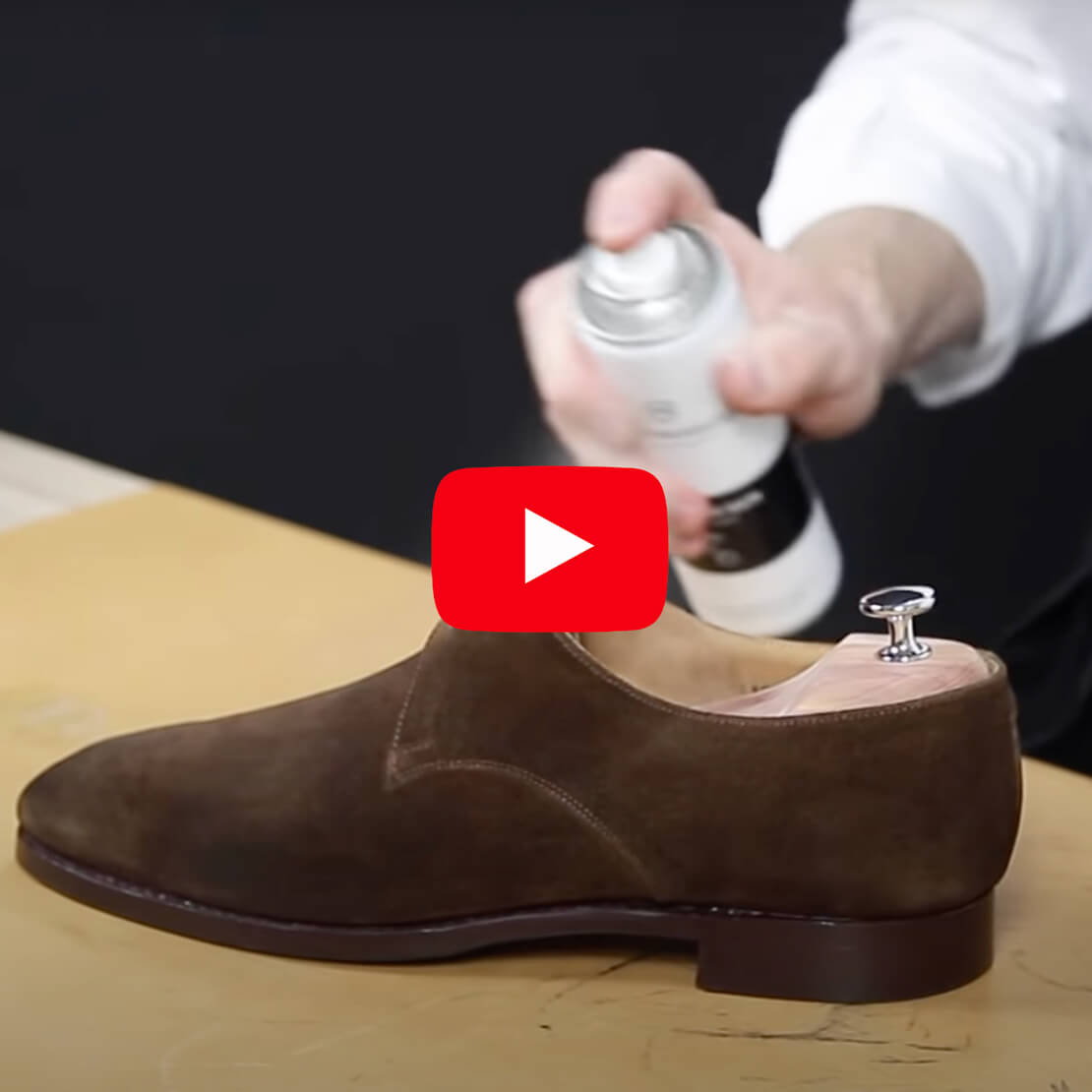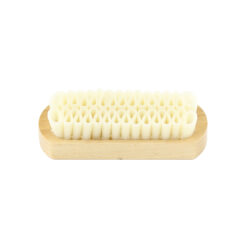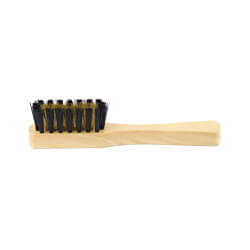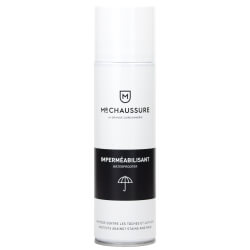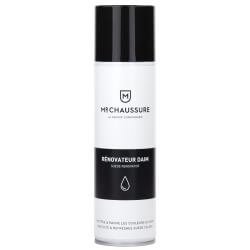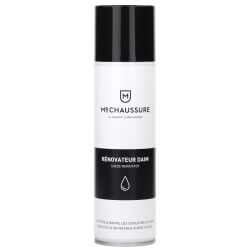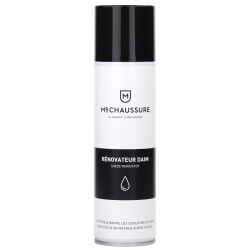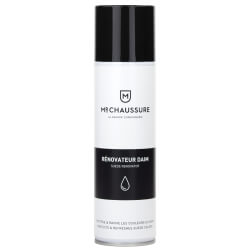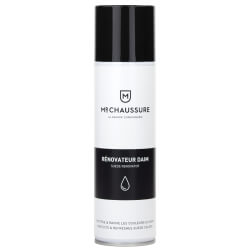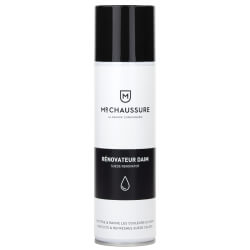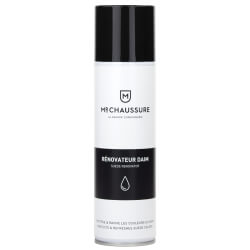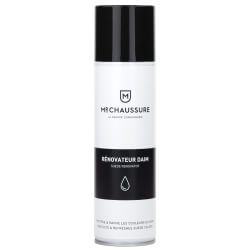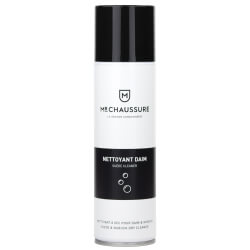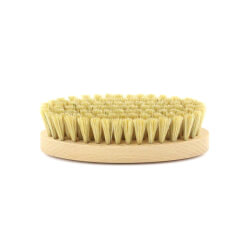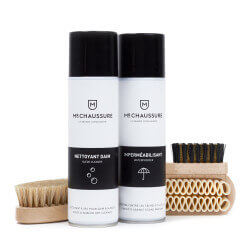Everything you need to know about nubuck
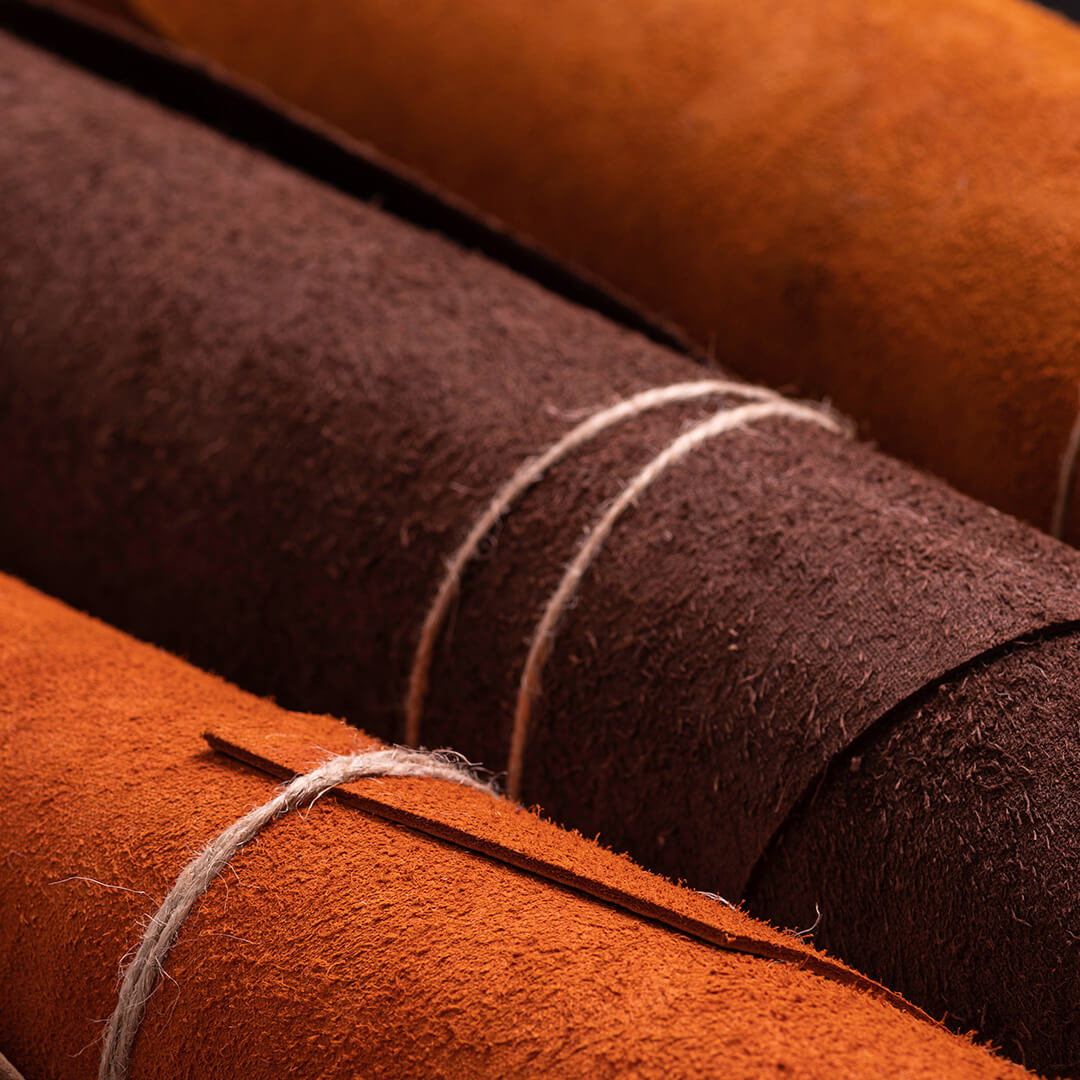
What is nubuck?
In the world of leather goods and fashion, nubuck is a material that reflects elegance and finesse. It is often confused with leather types such as velours because of their similar texture. Yet nubuck leather has its own specific characteristics, making it the material of choice for the manufacture of top-of-the-range fashion accessories.
Explore this article to find out more about the subtleties of this refined material. In particular, you'll discover its special characteristics, its manufacturing process, its various uses and the best way to care for it.
Nubuck: What does it actually mean?
Nubuck is a unique leather that is particularly appreciated for its soft texture and velvety appearance. Its matt finish gives it a luxurious appearance. It is obtained from bovine hides, generally from velvet calves, via a meticulous sanding process.
Unlike other smooth, shiny leathers, the specific dyeing techniques used on nubuck allow for a wide range of deep, rich colours, giving the finished product a high-end look and distinctive value.
Despite its softness, nubuck is a material that retains the inherent strength and durability of leather. To preserve the condition of its surface finish, regular maintenance is necessary.
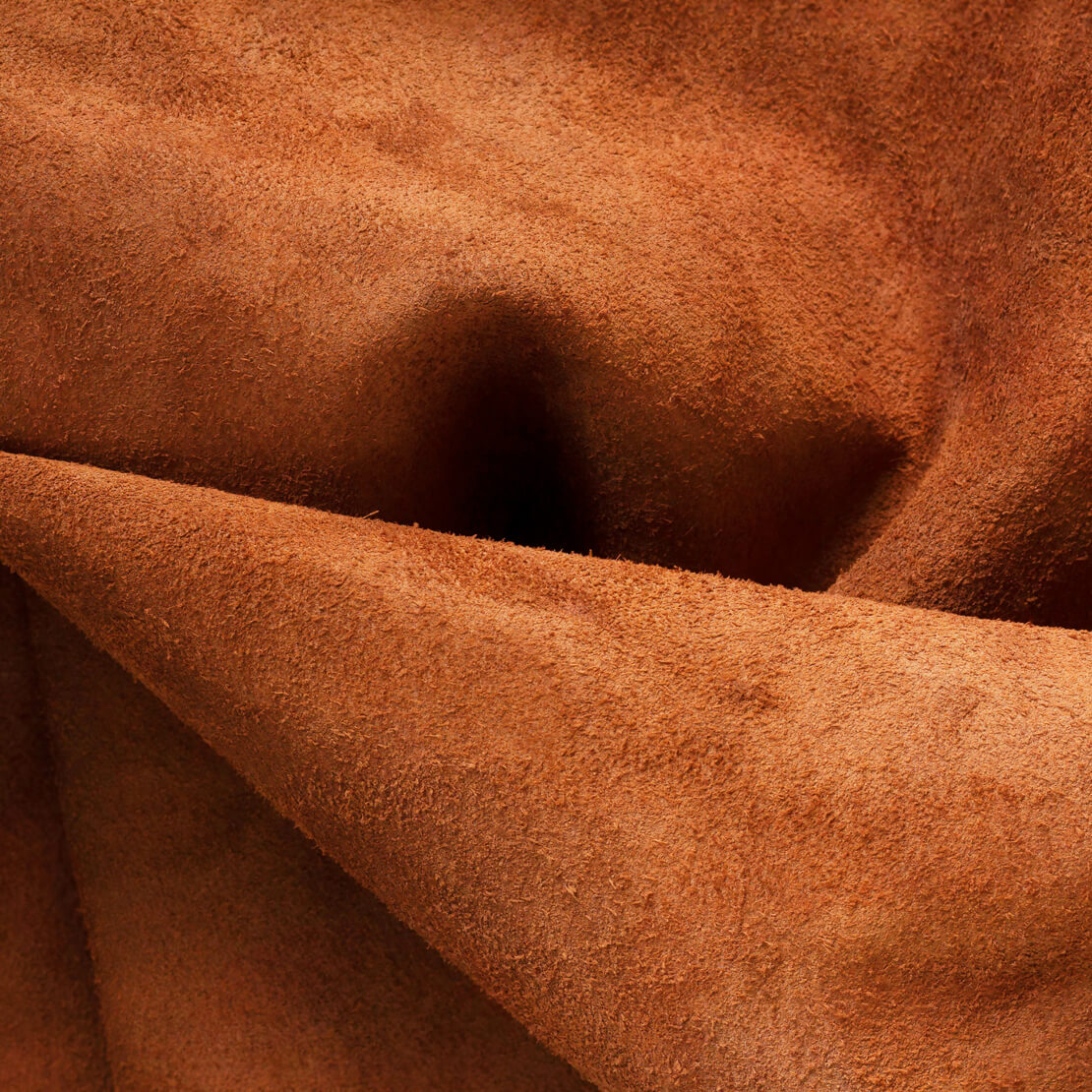
What are the differences between suede and nubuck?
At first glance, it seems hard to tell the difference between nubuck and suede leather. Both are particularly appreciated for their pleasant, silky feel.
However, nubuck is a greasy leather, whereas suede is sensitive to the touch, and makes sense when lightly pressed with the finger. One of the reasons for this difference is that the grain side is used to make nubuck leather, while the flesh side is used to make suede leather.
"Suede leather" and "suede" are also confusing terms, since they are approximations of language. The fact is that they both refer to nubuck and suede leather. It is important to note that suede does not indicate the animal.
The latter is a protected species. The term is used simply to define leathers with a velvety appearance, such as suede leather.
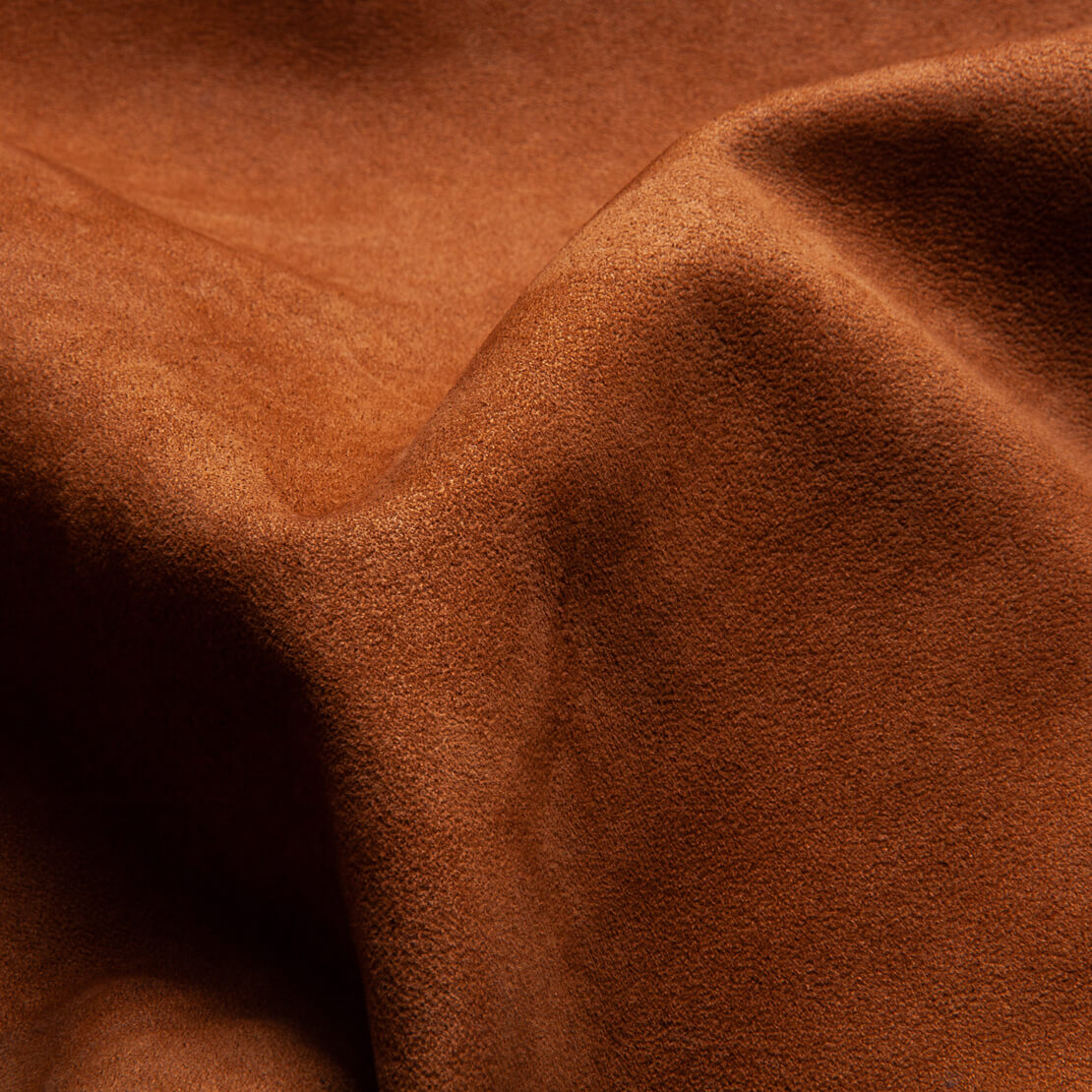
How is nubuck made?
To transform a simple cowhide into the luxurious, soft, velvety material that is nubuck, a rigorous manufacturing process must be put in place.
This involves several stages:
1. Selecting the hides
The hides must come from young cattle and have no imperfections to guarantee the fine texture of the nubuck.
2. Pre-treatment of the hides
The hides selected undergo a preliminary treatment to remove hair, dead cells and other impurities.
3. Tanning
This treatment gives the leather its tough appearance and prevents any decomposition. The most common tanning method involves applying chromium salts to the outside of the hide.
4. Dyeing
This stage enhances the aesthetic appeal of the leather and creates rich, subtle shades. The dye penetrates the leather fibres to give it its final colour.
5. Buffing
This process gives nubuck its soft surface and velvety appearance. It consists of creating a layer of short protein fibres on the top layer of the hide. It is important to note that the buffing process is only superficial, allowing the grain of the leather to show through.
6.Finishing
The finishing treatment seals in the colour, reinforces the water resistance of the leather and protects it from wear and tear. Protective agents can also be applied at this stage to prevent stains and make maintenance easier.
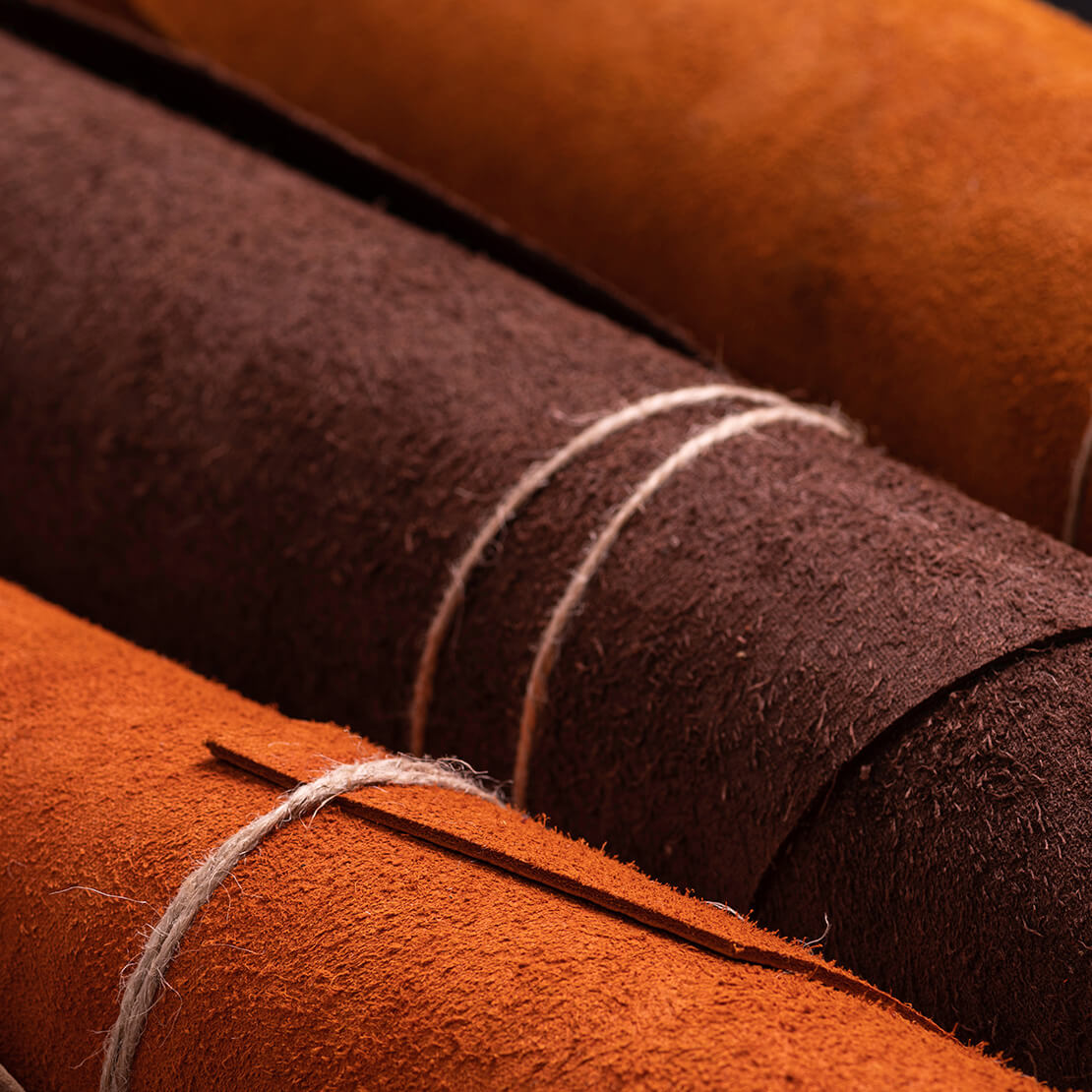
Nubuck leather: What are its uses?
Its soft, velvety texture, incredible durability, breathable properties and unique ageing process make nubuck leather a top-quality material.
As a result, its use is highly appreciated by a number of industrial sectors:
1. The fashion sector
Thanks to its specific characteristics, nubuck is a very popular material for making shoes, bags and other accessories such as wallets and belts.
2. The furniture sector
In addition to its durability and resistance, nubuck's velvety, luxurious appearance makes it a preferred material for upholstering luxury furniture, including armchairs and sofas.
3. The automotive sector
The interiors of most top-of-the-range cars are fitted with nubuck to give them a luxurious touch. Nubuck leather is used for steering wheels, seats and dashboard covers.
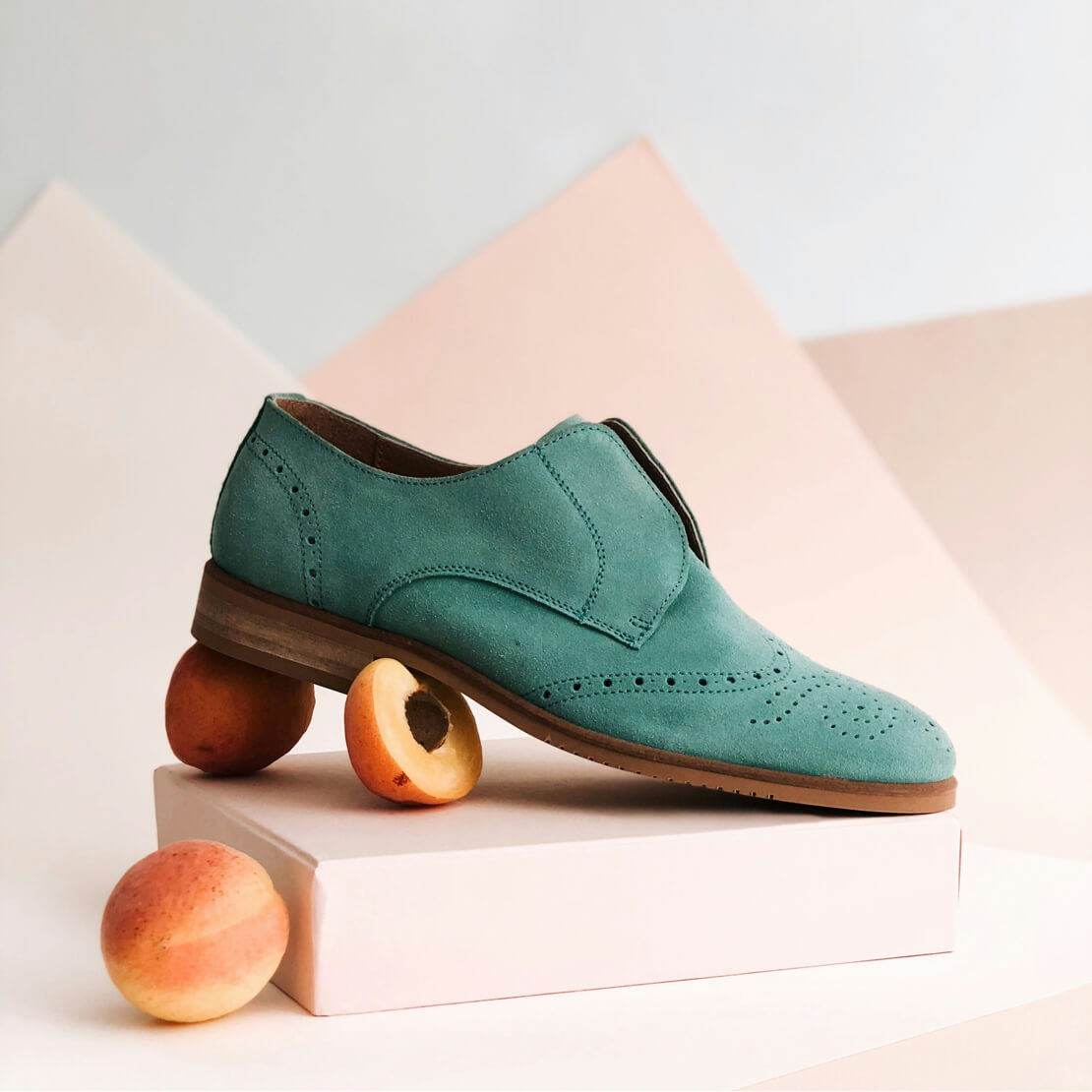
How to clean nubuck shoes?
Despite its excellent properties, nubuck leather needs regular care to stay in excellent condition.
Here's Monsieur Chaussure's method, ideal for looking after nubuck leather products:
Step 1: remove dust
Use a suitable boar bristle scraper to remove any excess dirt that sticks to the nubuck.
Step 2: Shine the nubuck
Over time, nubuck leather can take on a blackish appearance. Before applying products to nourish and protect the leather, it needs to be delustered. To do this, use a brass or crepe brush. Brushing should be done in both directions of the pile to obtain the velvety appearance of the nubuck.
When tasting, the nubuck may whiten before returning to its original colour in the next steps.
Step 3: Cleaning
To clean nubuck, spray the surface with the appropriate Monsieur Chaussure cleaning spray and then brush it with the scraper.
Step 4: Nourish and revive
Finish the care by applying a specific renovating product evenly. Leave to dry for around 15 minutes before re-brushing the surface with the brass brush.
Step 5: Waterproofing the nubuck
Finish by waterproofing your pair to protect them from the elements.
